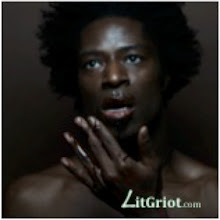The Filthy Rich Nation Shrinking Population epidemic is sweeping through northern Europe, and the continued demise of Third World Peoples- through debt, disease or demoralization- has been for told in Sci-Fi hits for years, most notably the Andrew Niccol’s 1997 hit Gattaca. Ethan Hawke played (again) the underdog, this time the left over genetic mess playing catch up to his genetically engineered and therefore superior brother, played by the dapper , handsome and witty Jude Law. In Gattaca’s world, the women are pretty, the people are wealthy and almost all are white save for a few random scientists. Ah, the future seems so bright.
As commentary on the role of genetic determinism and Eugenics in the future of genetic research and gene therapy, the film was radically excellent. Once our genetic sequences have been fully decoded, according to Gattaca ‘s logic, society could ‘manipulate’ away illness. Hence, like in Training Day co-starring Denzel Washington, Ethan Hawke’s character gets the audience to sympathize with his inalienable ‘underclass’ status as he triumphs over social inequality and oppression. Phat story and well told.
The July 28th Economist updated readers about fact that, as the magazine presents them, “If a country wants to keep its population up, it should promote IVF.’ This statement stands in bold lettering under an equally bold close up of a Gattaca like, blond haired blue-eyed, fair toddler crawling on well manicured grass against a backdrop of a romanticized antique European building to announce the infant’s class status. The caste is clear: In Gattaca, all ‘valid’ births are through IVF, selectively combining the best of both parent’s genetic contributions. The rest are ‘in-valids’.
For a ‘non-life threatening condition’ In Vitro Fertilization is the final frontier in addressing the shrinking sperm count of the region’s native men, and the heightened age at which native (heterosexual) women tend to conceive. The native population is ‘developed’ and is shrinking. Unlike immigration or foreign adoption from underdeveloped parts of the world, IVF has ‘completely compensated’ for the reducing ‘effect’.
Other pages in the same journal indicate that immigration is unpopular in places worst hit by the Filthy Rich Nation Shrinking Population epidemic. Moreover, wealthy nations are increasingly wealthy, and the most celebrated of ‘multi-kulti’ nation-states, America, even builds fences to ward of the darkies from down south, while keeping many other undesirables locked up. In Denmark, a nation whose native population is fastest in decline, now has a stable population due to IVF technology. In other parts of the world, quite heinous technologies and methods are applied to hinder reproduction, for those populations are purported, in the same news outlets, to be explosive!
‘Inmates (see above) [indicating a large color photo of two dark skin Negro males. The younger one faces the camera, coveting an open notebook while regarding the other; an elderly man sits adjacently wearing standardized eyeglasses while holding a pen over a blank legal pad] even teach each other to read’ Though the Economist will offer lengthy statistics and their analysis, rarely do they analyze why their prison stories always picture (dark skinned) Black male ‘inmates’. Arabs, Africans all get a similar rap in that magazine, either pictured as frail from war and starvation or fat from corruption!
As commentary on the role of genetic determinism and Eugenics in the future of genetic research and gene therapy, the film was radically excellent. Once our genetic sequences have been fully decoded, according to Gattaca ‘s logic, society could ‘manipulate’ away illness. Hence, like in Training Day co-starring Denzel Washington, Ethan Hawke’s character gets the audience to sympathize with his inalienable ‘underclass’ status as he triumphs over social inequality and oppression. Phat story and well told.
The July 28th Economist updated readers about fact that, as the magazine presents them, “If a country wants to keep its population up, it should promote IVF.’ This statement stands in bold lettering under an equally bold close up of a Gattaca like, blond haired blue-eyed, fair toddler crawling on well manicured grass against a backdrop of a romanticized antique European building to announce the infant’s class status. The caste is clear: In Gattaca, all ‘valid’ births are through IVF, selectively combining the best of both parent’s genetic contributions. The rest are ‘in-valids’.
For a ‘non-life threatening condition’ In Vitro Fertilization is the final frontier in addressing the shrinking sperm count of the region’s native men, and the heightened age at which native (heterosexual) women tend to conceive. The native population is ‘developed’ and is shrinking. Unlike immigration or foreign adoption from underdeveloped parts of the world, IVF has ‘completely compensated’ for the reducing ‘effect’.
Other pages in the same journal indicate that immigration is unpopular in places worst hit by the Filthy Rich Nation Shrinking Population epidemic. Moreover, wealthy nations are increasingly wealthy, and the most celebrated of ‘multi-kulti’ nation-states, America, even builds fences to ward of the darkies from down south, while keeping many other undesirables locked up. In Denmark, a nation whose native population is fastest in decline, now has a stable population due to IVF technology. In other parts of the world, quite heinous technologies and methods are applied to hinder reproduction, for those populations are purported, in the same news outlets, to be explosive!
‘Inmates (see above) [indicating a large color photo of two dark skin Negro males. The younger one faces the camera, coveting an open notebook while regarding the other; an elderly man sits adjacently wearing standardized eyeglasses while holding a pen over a blank legal pad] even teach each other to read’ Though the Economist will offer lengthy statistics and their analysis, rarely do they analyze why their prison stories always picture (dark skinned) Black male ‘inmates’. Arabs, Africans all get a similar rap in that magazine, either pictured as frail from war and starvation or fat from corruption!
